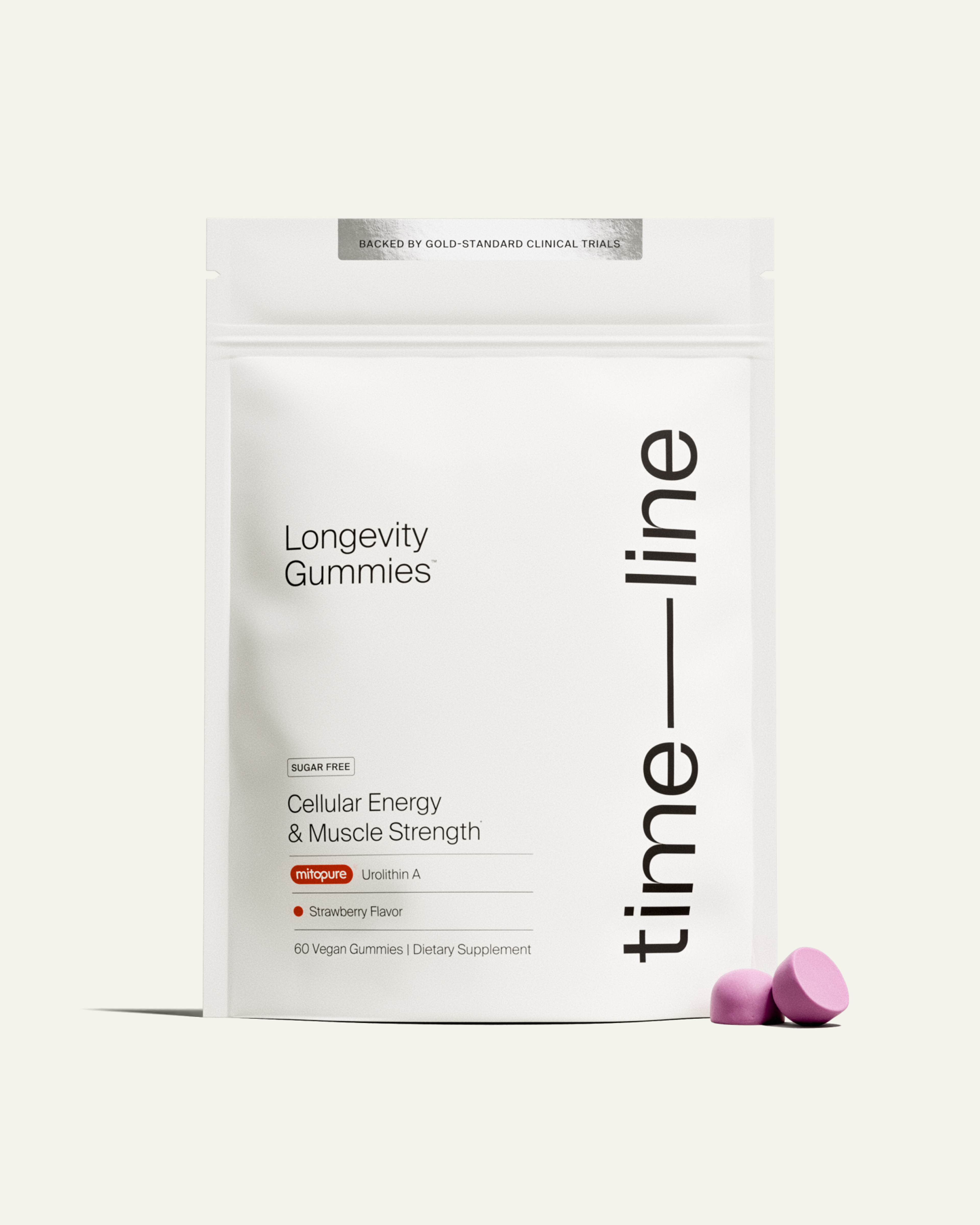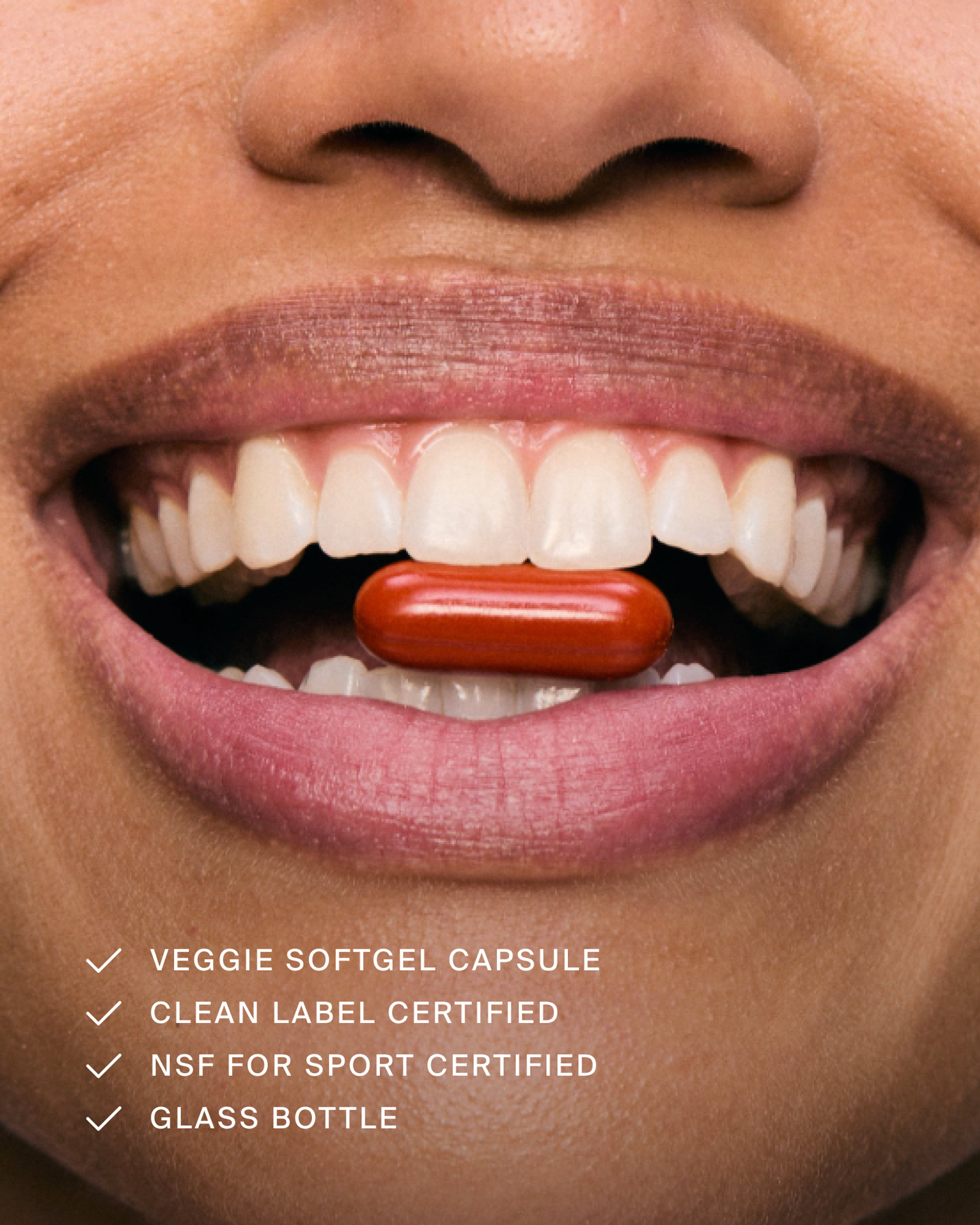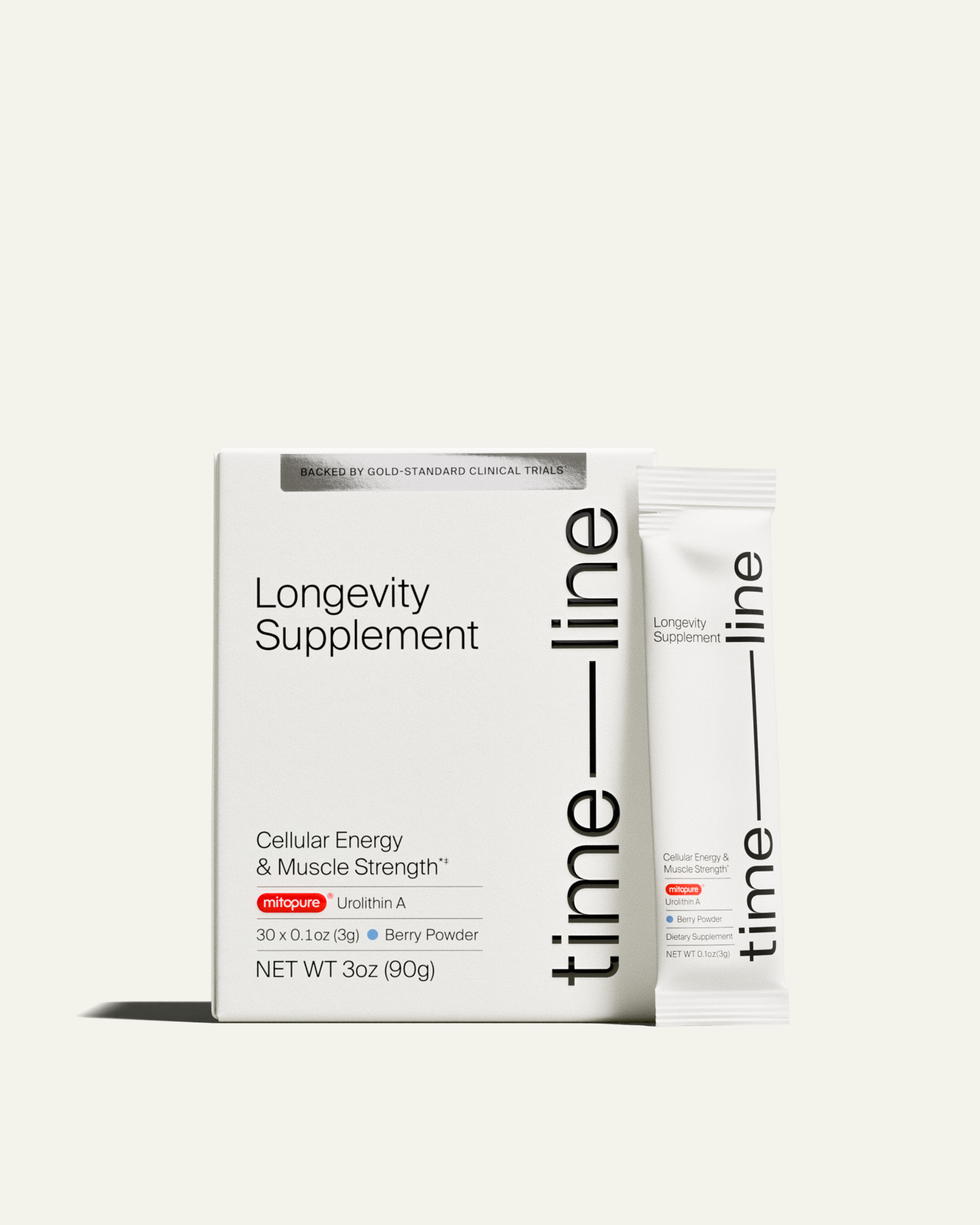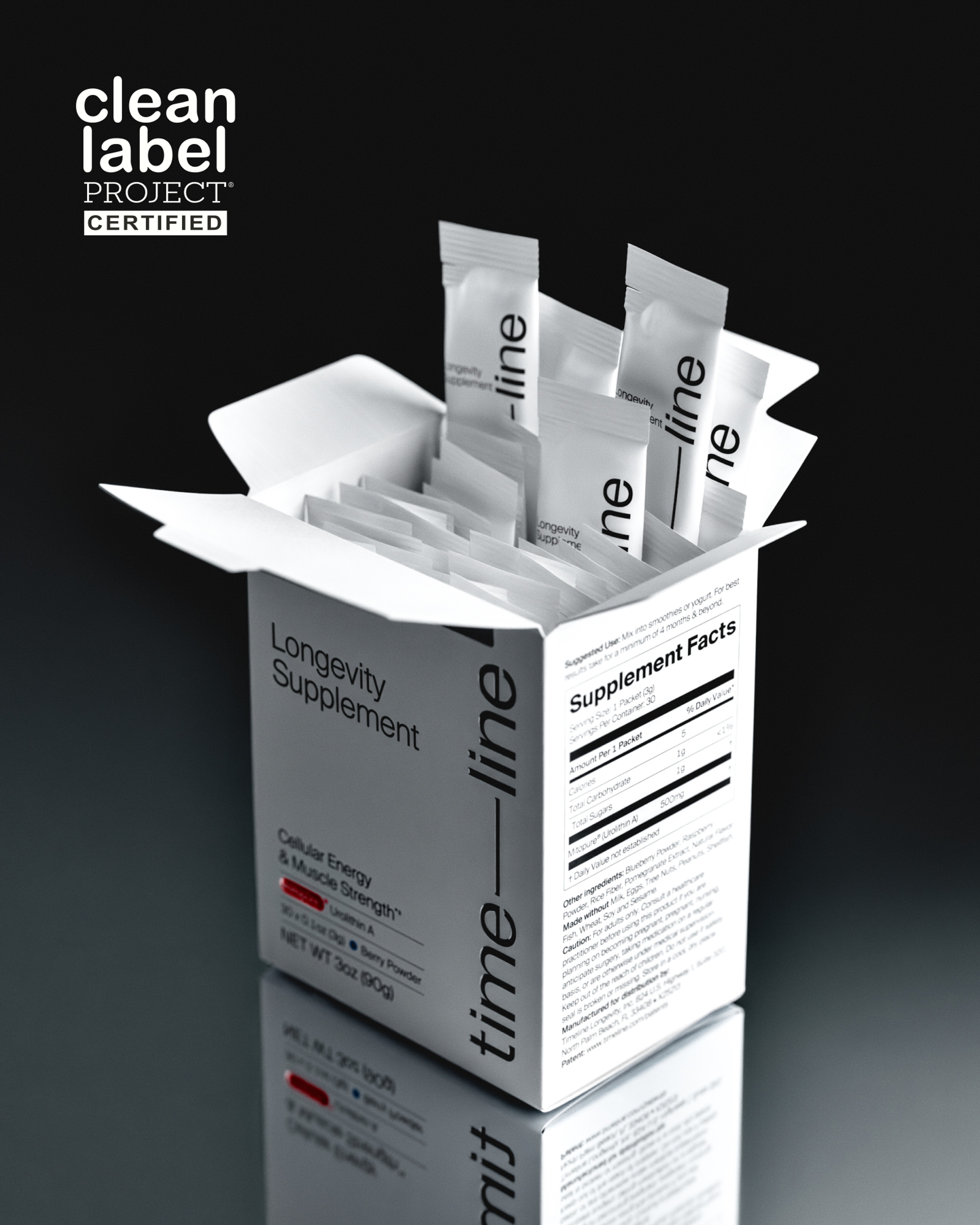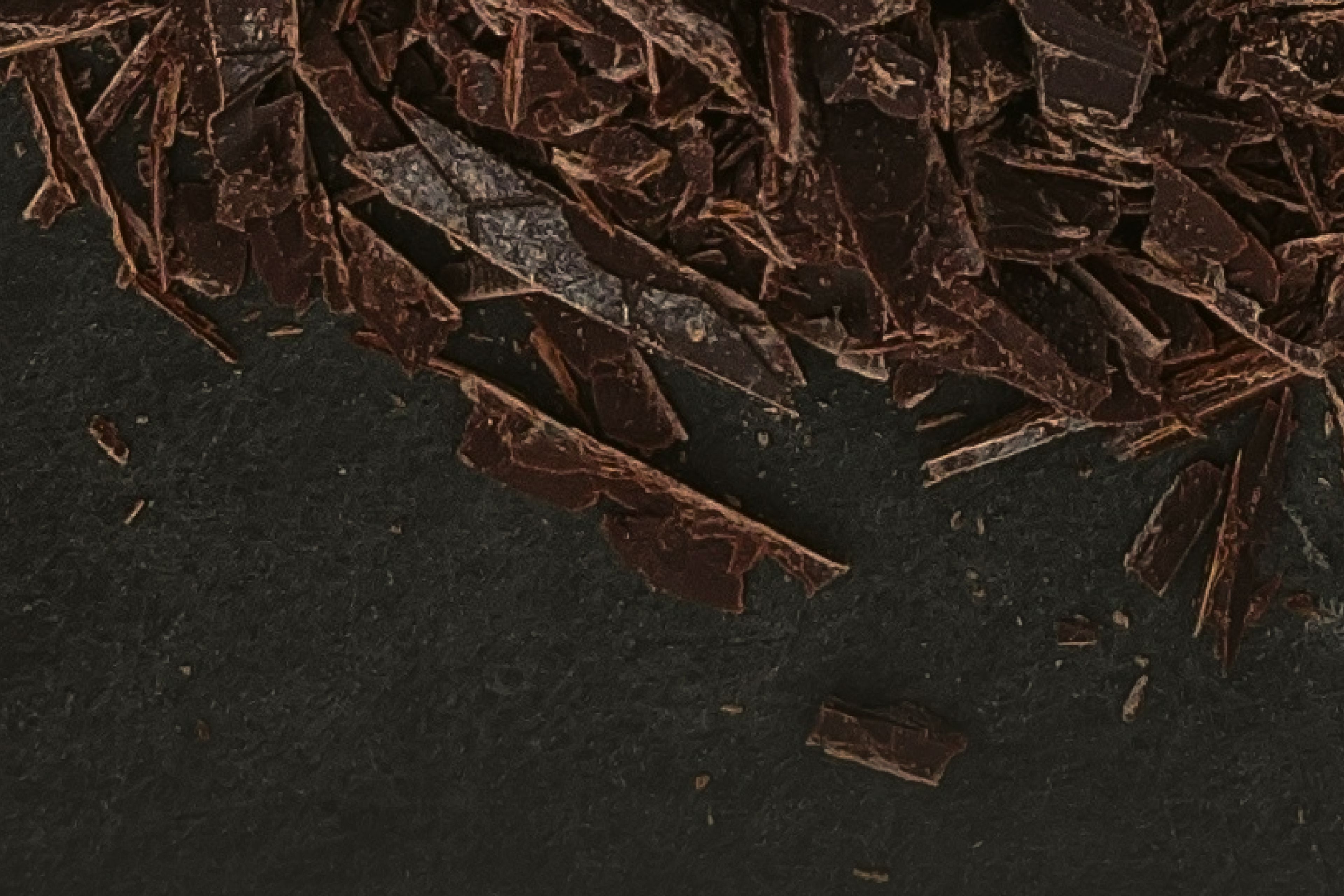Clean Up Your Skincare: 5 Ingredients to Ditch
The key to healthy aging is choosing skincare that is safe. Learn which ingredients to avoid and their clean alternatives.
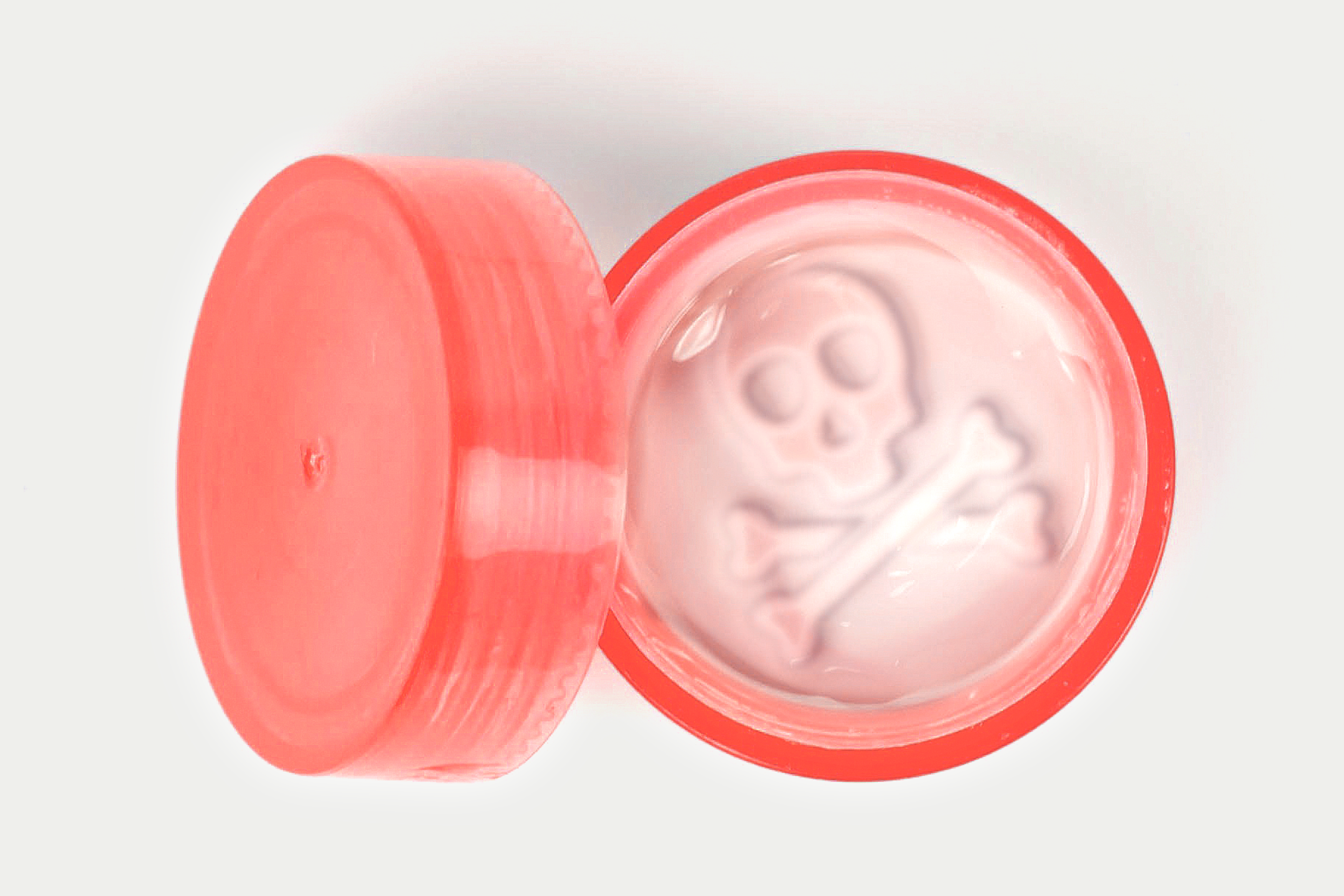
What to know
The skin absorbs a significant portion of what is applied to its surface, affecting both skin health and overall well-being.
Five key skincare ingredients to avoid are parabens, mineral oils, silicons (SLS/SLES), synthetic fragrances, and synthetic colors.
Many skincare ingredients can damage skin health by weakening the skin barrier leading to increased skin irritation, dryness, sensitization, inflammation, etc.
The Yuka app can identify safe and clean skincare products free of the toxic five, such as Timeline's skincare line with a high Yuka score of 93/100!
Sometimes what you don’t apply on your skin matters more than what you do apply. When done correctly, skin care can facilitate healthy aging in skin and the rest of our bodies. Unfortunately, just a few harsh ingredients can turn your skin care routine into a skin-damaging routine.
The skin absorbs 60-70% of everything on its surface; skin care not only affects skin health but also affects[1] overall health. Applying harmful ingredients to the skin accelerates skin aging and even leads to disease[2]. Let’s look at 5 key skincare ingredients to avoid and why they’re so problematic.
What ingredients should you avoid in skin care products?
The FDA has banned the use of several chemicals in skincare products. However, there are a few notably toxic chemicals that are let loose on our drugstore shelves. Companies may still use these chemicals despite their harmful effects due to cheap manufacturing, lack of safety testing, and overall product appearance (e.g., fragrances or dyes). Some ingredients to avoid in skincare include parabens, mineral oils, silicones (SLS / SLES), synthetic fragrances, and synthetic colors.
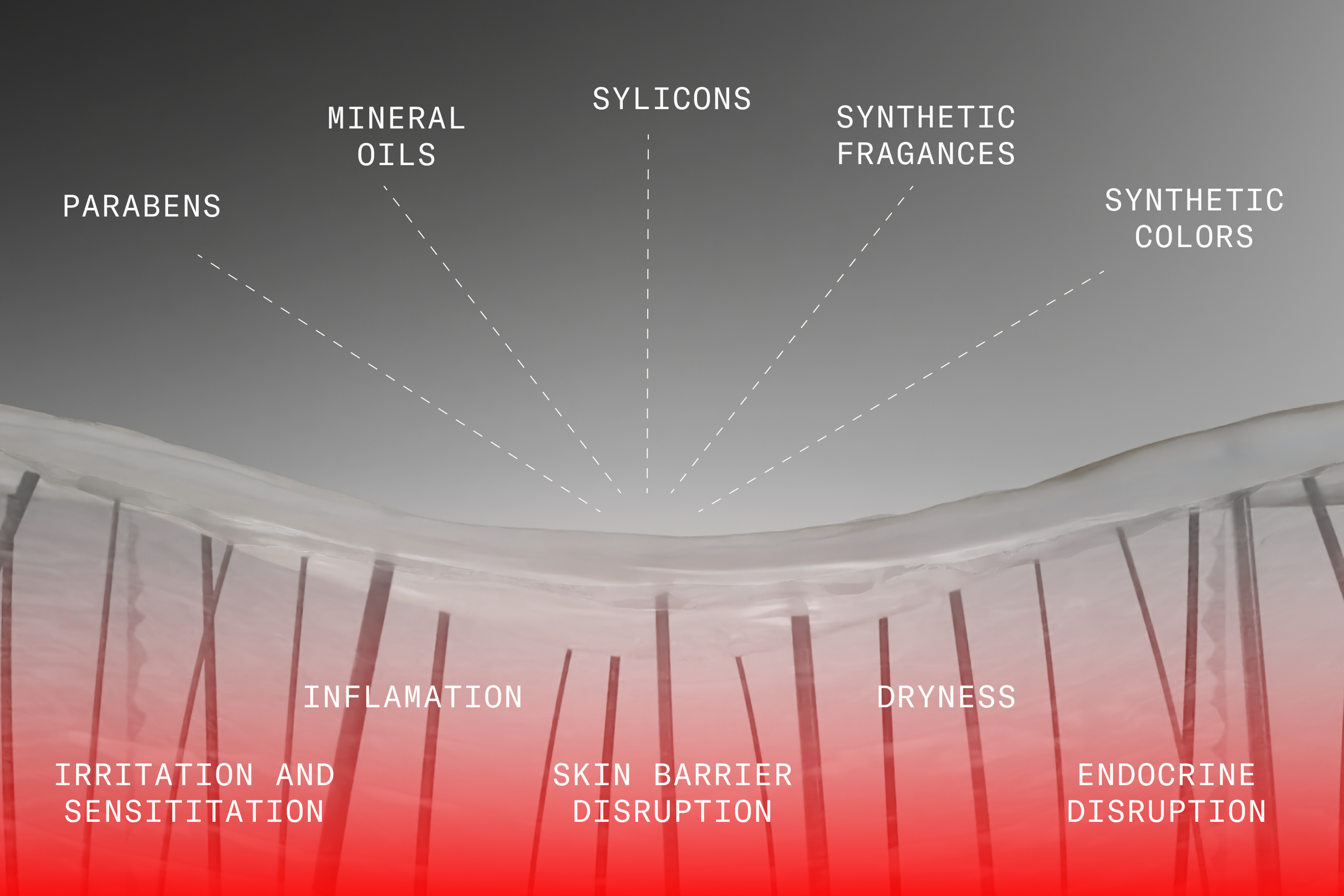
Top 5 Toxic Ingredients for the Skin and their consequences
Parabens
Parabens are a family of chemicals that serve as synthetic preservatives. They’re typically used to extend a product’s shelf life, but why are parabens bad?
- Endocrine disruption. Once parabens are absorbed through the skin, they imitate estrogen and actively disrupt hormone function. The extent of these chemicals' impact is not fully understood; however,[3] they may increase the risk of fertility concerns and accelerate ovarian aging in women. [4]
- Metabolic interference. Estrogen plays a large role in metabolic processes in the body. Some research suggests a correlation between paraben exposure and BMI; there are also signs of paraben-induced metabolic disruptions which lead to an increased risk of obesity[5].
- Skin Irritation and Sensitization. Parabens are also fairly harsh on the skin, which can lead to redness and itching. Parabens can also make the skin more prone to irritation and allergic reactions over time.[6]
To avoid parabens in your skin care products, look out for any chemicals that end with “paraben” in your ingredients list (eg. methylparaben, propylparaben). Keep an eye out for products that say “paraben-free.”
Mineral Oils
Mineral oils are petroleum-derived ingredients typically found in moisturizing products. Although the name sounds safe, mineral oils are known to clog pores. This can lead to acne, whiteheads, blackheads, and general skin inflammation[7]. Mildly processed or unprocessed mineral oils may contain polycyclic aromatic hydrocarbons (PAHs). These have even been classified as Group 1 carcinogens, meaning there is enough evidence to conclude that they can cause cancer in humans. [8]
To avoid mineral oils in skincare, stay away from products with "mineral oil" or "paraffin oil" as listed ingredients; instead, try to opt for products with “jojoba oil” and “argan oil” as cleaner alternatives.
Silicons (SLS / SLES)
Silicones, specifically Sodium Lauryl Sulfate (SLS) and Sodium Laureth Sulfate (SLES) are often used as foaming agents to create a frothy lather and remove oil and dirt from the skin. However, research has found that these compounds slowly deteriorate skin health; here are some reasons to avoid SLS and SLES in skincare products.
- Skin irritation and dryness. SLS and SLES are almost too effective at cleaning the skin. The compounds bind to oils and fats to remove them from the skin’s surface; this completely strips the skin of its natural oils[9]. Dry skin also emphasizes the appearance of fine lines and wrinkles, making the skin look more aged.
- Skin inflammation. SLS and SLES are also known to damage important structural proteins deep in the skin. This damage leads to inflammation, which increases skin sensitivity, leads to redness, and worsens acne. SLS and SLES also increase the skin’s pH, once again leading to inflammation.
- Skin barrier disruption. The skin has a delicate barrier made of fats that keeps irritants out and locks moisture in; the skin barrier is often used as an indicator of skin age and health. SLS and SLES disrupt this barrier, accelerating skin aging. [10]A weak skin barrier increases sensitivity to external irritants and UV radiation; this leads to sun damage and inflammation in the skin.
Look out for any ingredients that have “sulfate” in their name. Use products with that say “sulfate-free” instead!
Synthetic Fragrances
Synthetic fragrance refers to scents added to skincare products. Many times, we don’t know what these fragrances are made of. Companies aren’t required to disclose the ingredients of their proprietary blends. This lack of transparency can increase the risk of an adverse reaction. Here are some known issues associated with synthetic fragrances.
- Irritation and sensitization. Research demonstrates that sensitive skin is directly linked to fragrance exposure. Sensitive skin experiences more inflammation; excessive exposure to synthetic fragrances can even cause atopic contact dermatitis: an inflammatory skin disease. [11]
- Skin barrier disruption. Fragrance-induced inflammation actively disrupts skin barrier function. [12] A weaker skin barrier accelerates aging in the skin, worsening inflammation.
- Aggravation of existing skin conditions. Individuals with sensitive skin or conditions like eczema can experience allergic reactions to synthetic fragrances. Skin barrier disruption also dries out the skin, furthering eczema and other skin-drying conditions.[13]
If you have an existing skin condition, sensitive skin, or are generally concerned about your skin health, consider using fragrance-free or unscented skincare products.
Synthetic Colors
Synthetic colors are artificial dyes commonly added to skincare products. Unfortunately, these dyes are known carcinogens which also cause irritation and allergic reactions. [14] Synthetic colors can also contain proprietary combinations of chemicals. Manufacturers are not required to disclose the specific ingredients used in the blend. Ensure your products don’t include color additives or FD&C / D&C followed by a color number.
Skin health is not the only reason dyes are chemicals to avoid in skincare. Dyes are also known to have devastating impacts on marine life. Once we wash off our skincare, these harmful chemicals enter our ecosystems and impact our environment.[15]
Choosing Safer Skin Care
It can be challenging to keep track of all these different ingredients. The Yuka app is an ingredient checker that scans a product and assigns it a safety score using the latest scientific findings. The minimum Yuka score needed to get a “good” rating is 50/100. The rating turns “excellent: once it reaches 75/100. Yuka can help you avoid these harmful five and other potentially bad skincare ingredients so you can select cleaner, safer skincare products!
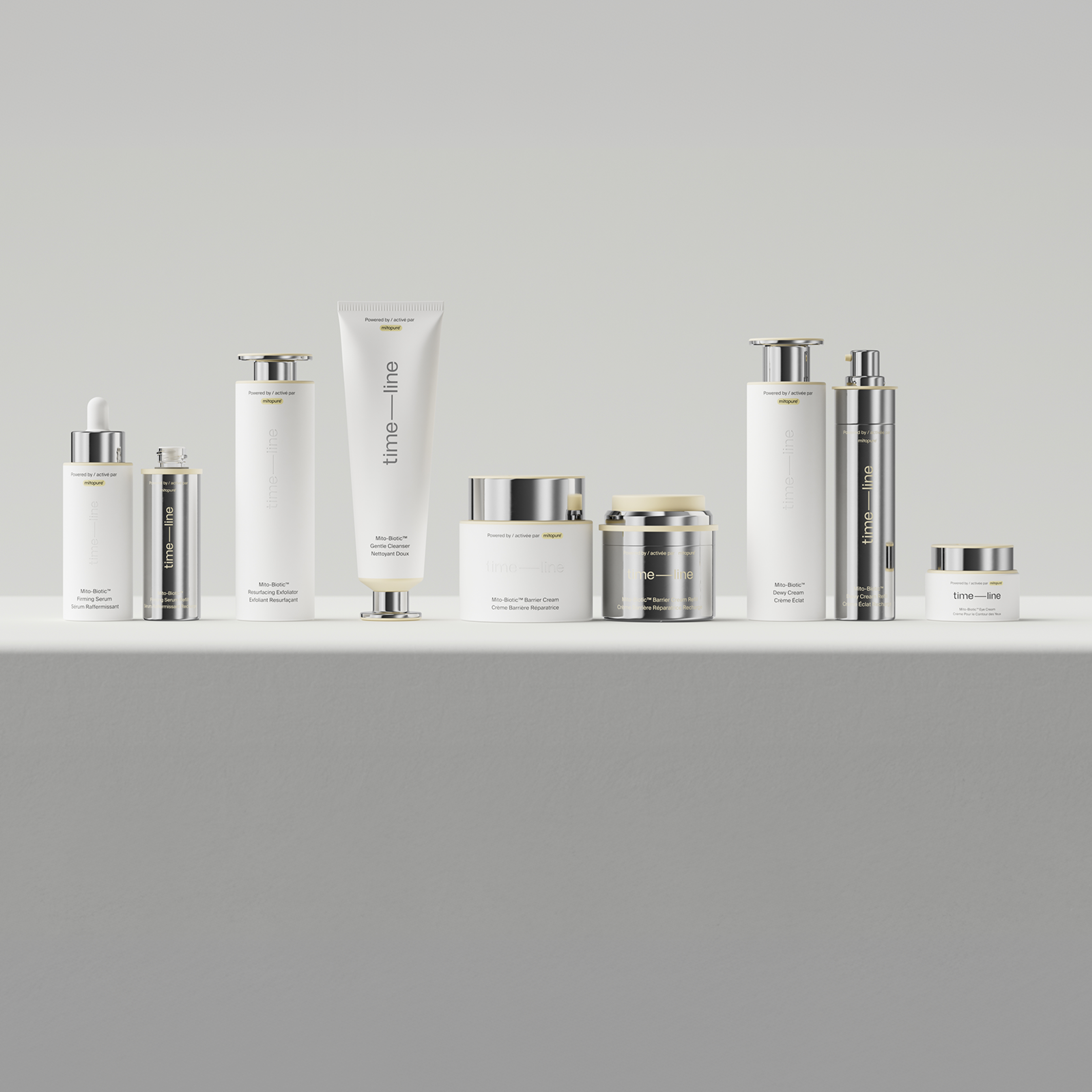
Timeline’s Skin Health Line
Timeline’s Skin Health products are free of parabens, mineral oil, sulfates, synthetic fragrances, and synthetic colors. They also have a terrific Yuka score of 93/100, making it a very safe product to apply. If you want an effective product that doesn’t include harmful ingredients, try the Timeline Skin Health Line!
Timeline’s products contain Mitopure®, a highly concentrated form of Urolithin A. Urolithin A is a compound clinically proven to strengthen the skin by slowing intrinsic and extrinsic skin aging.
Here are some products in the Timeline Skin Health Line to consider adding to your routine!
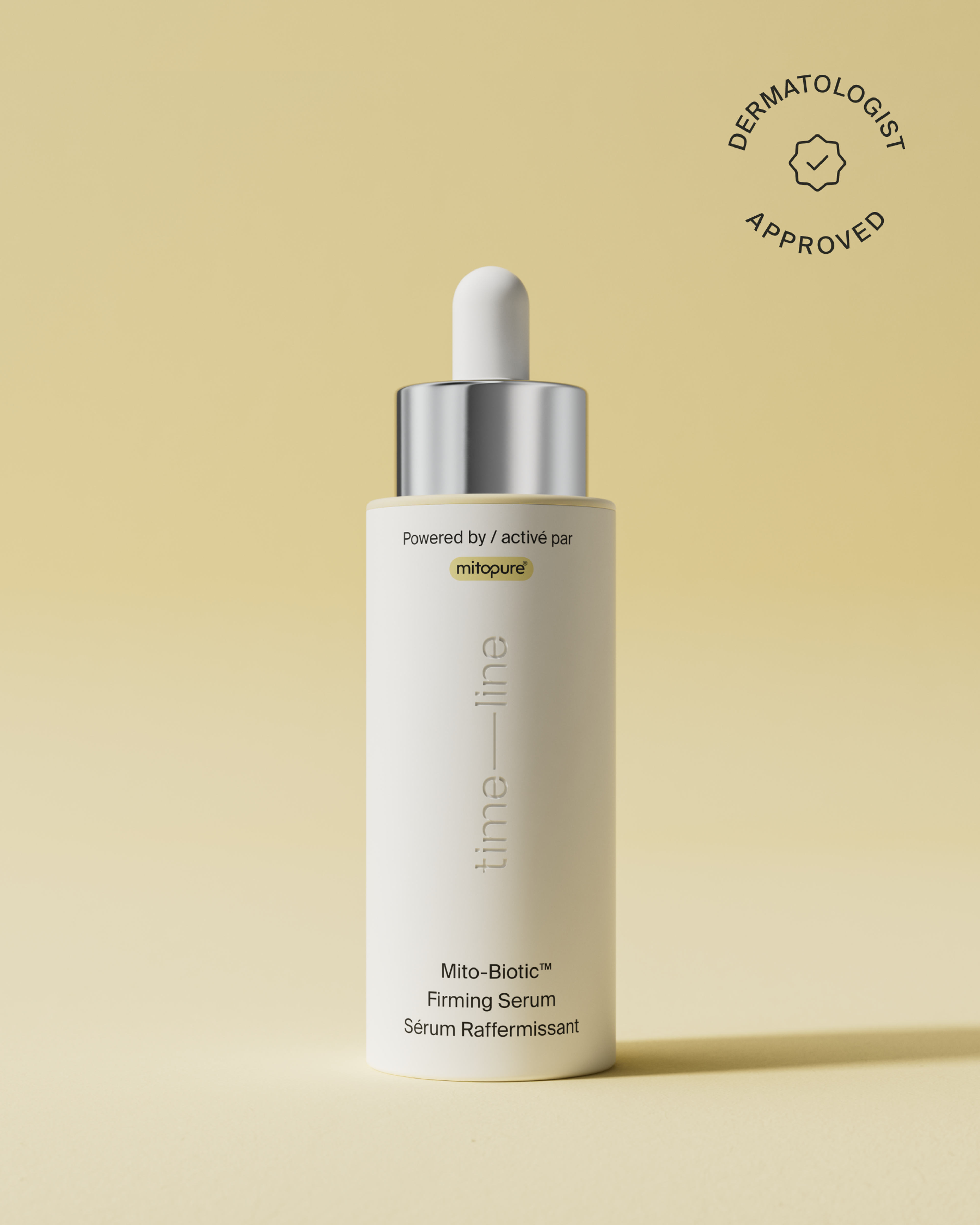
Mitopure Firming Serum
4.8 · 1462 reviews
Award-winning bioactive formula for renewal
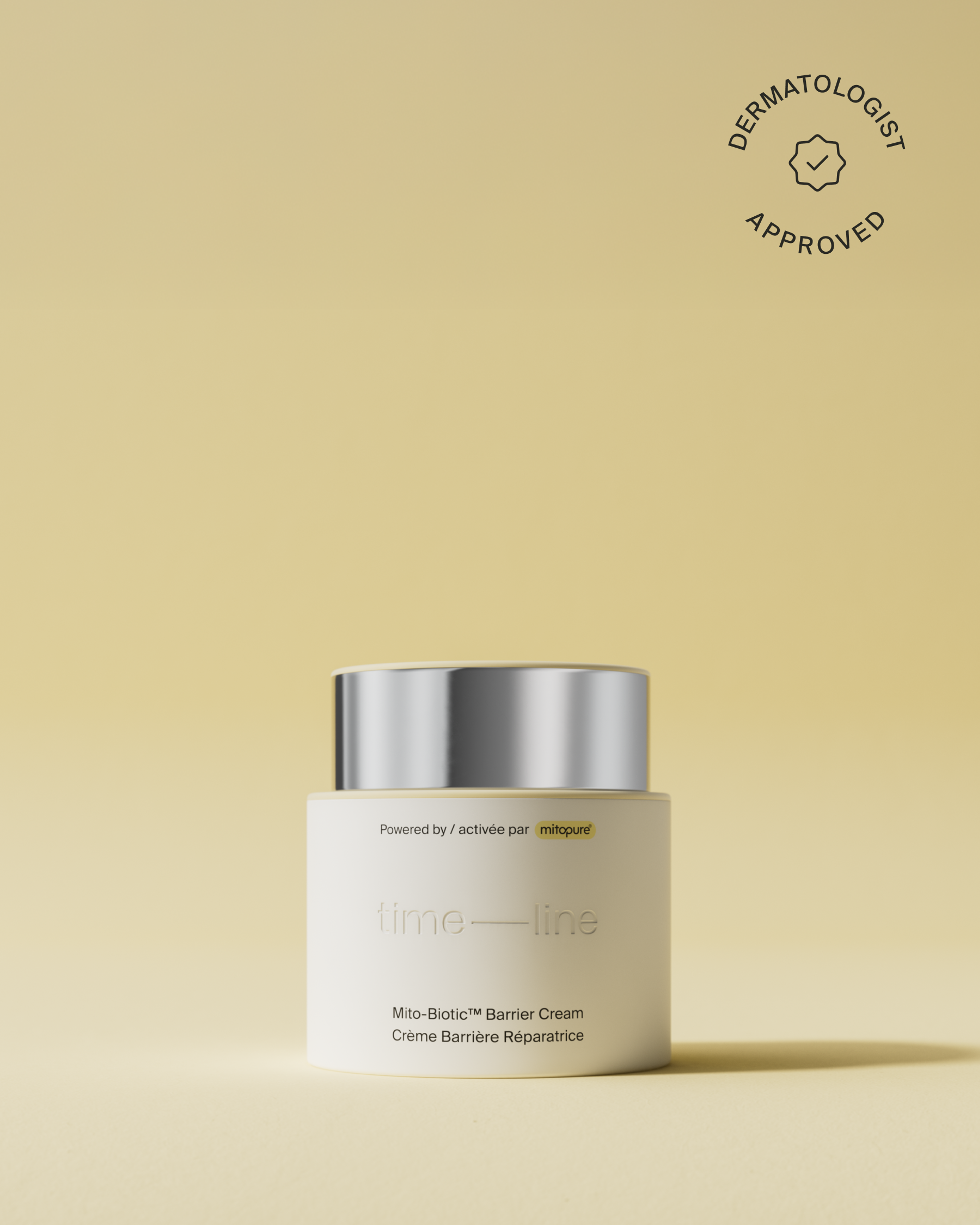
Mitopure Barrier Cream
4.7 · 168 reviews
Buttery, protective moisturizer with peptides
Good skin care starts with safe skin care. Make sure to keep these five in mind when selecting your skincare products!
Authors

Written by
Freelance writer

Reviewed by
Director Science Communications
References
- ↑
https://www.ncbi.nlm.nih.gov/pmc/articles/PMC2014387/
- ↑
https://www.ncbi.nlm.nih.gov/pmc/articles/PMC5614862/
- ↑
https://pubmed.ncbi.nlm.nih.gov/34030374/
- ↑
https://www.ncbi.nlm.nih.gov/pmc/articles/PMC3855500/
- ↑
https://pubmed.ncbi.nlm.nih.gov/30484673/
- ↑
https://pubmed.ncbi.nlm.nih.gov/17186576/
- ↑
https://www.ncbi.nlm.nih.gov/pmc/articles/PMC7527424/
- ↑
https://www.ncbi.nlm.nih.gov/books/NBK304428/
- ↑
https://www.ncbi.nlm.nih.gov/pmc/articles/PMC3431057/
- ↑
https://www.ncbi.nlm.nih.gov/pmc/articles/PMC8063842/
- ↑
https://www.ncbi.nlm.nih.gov/pmc/articles/PMC8247875/
- ↑
https://www.ncbi.nlm.nih.gov/pmc/articles/PMC9428921/
- ↑
https://www.ncbi.nlm.nih.gov/pmc/articles/PMC3858659/
- ↑
Unfortunately, these dyes are known carcinogens which also causeirritation and allergic reactions.
- ↑
https://www.ncbi.nlm.nih.gov/pmc/articles/PMC8270347/
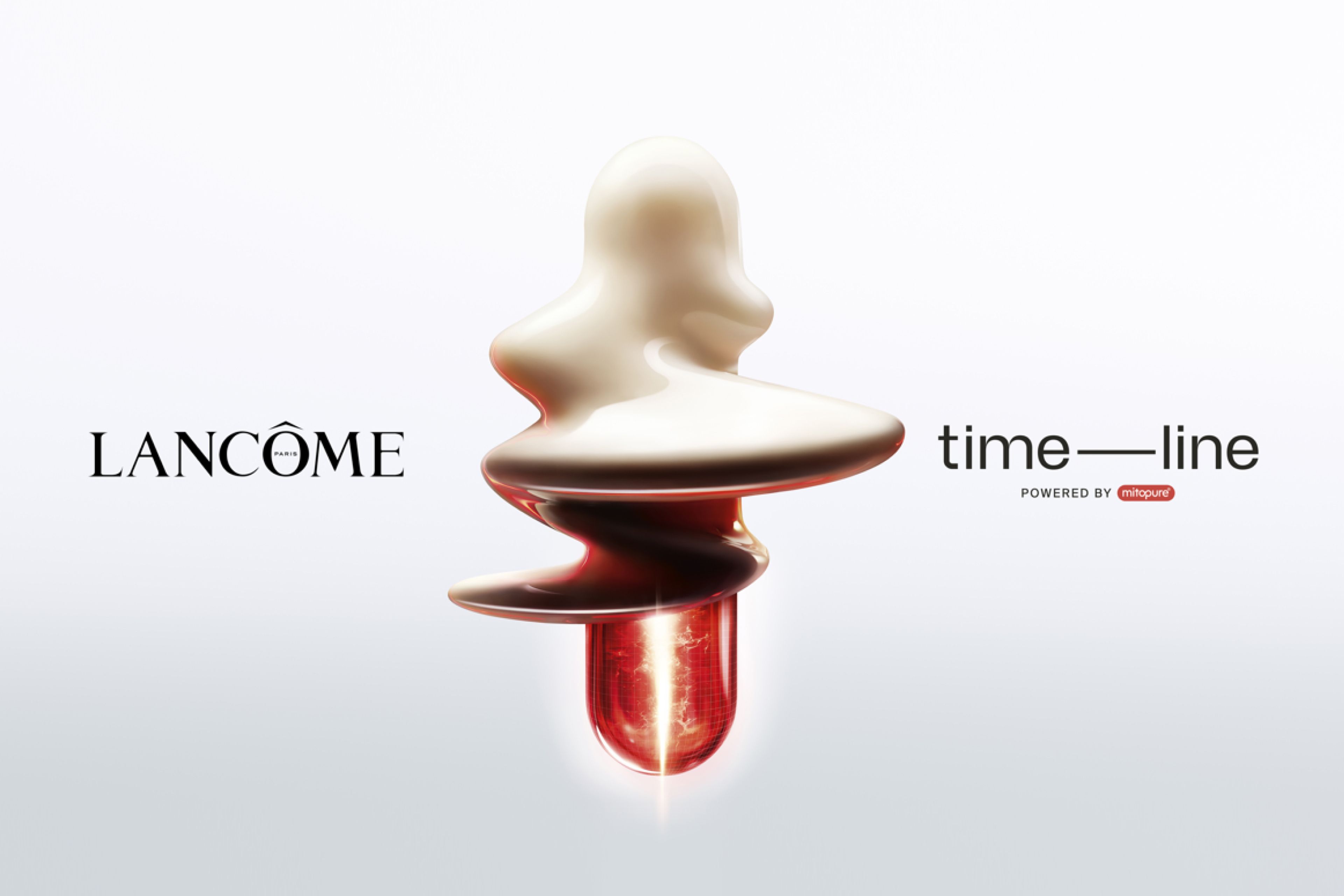
·
Skincare·
Timeline’s Mitopure® technology is launching globally

·
Skincare·
